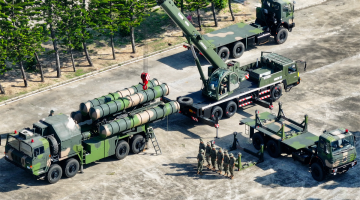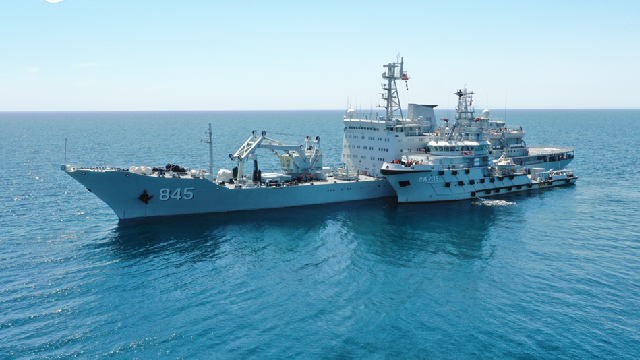By Yang Danzhi
The military cooperation between the US and the Philippines has continuously escalated recently. After a gap of seven years, the two sides held a 2+2 foreign and defense ministerial dialogue again and announced a joint statement to hype the award of South China Sea arbitration. Complicated motives lurk behind these series of actions of the two countries and there are three main purposes of the strengthened military activities for the US.
First, to consolidate the US-Philippine military alliance. The US expects to repair, solidify and elevate its relations with the Philippines during the administration of the Marcos government. To this end, it intensifies military assistance and bilateral military cooperation with the Philippines on the pretext of helping the latter promote maritime capability construction and achieve military modernization, including scheming a military development roadmap in ten years for the country. Its intent is to expand its influence in the Philippine military and exert more control on the alliance mechanism.
Second, to prepare for larger-scale regional conflicts and wars. America's "shoulder to shoulder" exercise with the Philippines in 2023 has been the largest joint military exercise between the two countries so far with 17600 soldiers participating, the scale of which is doubled compared to that of 2022. The exercise even involves subjects including biological warfare and chemical warfare.
From the perspective of scale and intensity, this joint exercise has reached far beyond the necessity to maintain the security of the Philippines, but prepares for larger-scale regional conflicts and wars, with the target of "safeguarding" the absolute security of the US and maintaining its hegemony in the Asia-Pacific.
Third, to strengthen regional presence and precautions in tandem with besieging China. The US and the Philippines continuously expand cooperation fields and take specific measures on the basis of the Enhanced Defense Cooperation Agreement (EDCA) concluded in 2014. The US vigorously urged the Philippines to agree to open another four military bases for it, in order to accelerate their interference capabilities in the situations of the Taiwan Strait and the South China Sea and further contain and deter China from two directions.
The Philippines' increased military cooperation with the US is driven by several complicated domestic and international factors. First, its military modernization progress has long stagnated, so it expects assistance and support from the US. Second, it wishes to counterbalance China and the US on the South China Sea issue. Third, its domestic political situations have a role. Different political powers often attack each other and scramble to play the card of nationalism to divert their people's attention and stir up national sentiment. For these reasons, the Philippines has further converged with the US on security issues recently and has even been "bounded" with the US to some extent.
This kind of security "binding" with the US may mean tremendous risk for the Philippines. In particular, the Philippines which has been put on the frontline may be dragged into disasters in case of conflicts in the Taiwan Strait. The US intensified interference in the affairs of the South China Sea by exploiting the military bases of the Philippines will inevitably heighten tensions in the South China Sea, and the Philippines will lose the space and room for flexibility in negotiating and dealing with the South China Sea issue with other countries. Therefore, hyping the award of South China Sea arbitration through 2+2 ministerial dialogue is not a wise decision for the Philippines.
Although President Ferdinand Marcos Jr. had emphasized the independent diplomatic policy of Philippines on many occasions and stressed that US accession to its military bases is out of consideration for safeguarding its national security instead of attacking other countries. However, some Philippine dignitaries and strategists including his sister Imee Marcos who is serving in the Congress of the Philippines, and Philippine Vice President Sara Duterte are concerned about the current policy adjustment toward the US and its potential risks. And some local politicians of this country also worry that strengthened US-Philippine military cooperation will damage the China-Philippine economic cooperation and influence China's investment in the Philippines.
Suppose the Marcos government has the intention to reinforce its independent foreign policy, it ought to break away from the impediment and interference of external forces and steps up in strategic coordination and practical cooperation with China. Joint devotion to regional security and prosperity aligns with the mutual interest of both China and the Philippines.
(The author is a doctor at the National Institute of International Strategy, Chinese Academy of Social Sciences (NIIS CASS) and a senior researcher on national security studies at Renmin University of China)
Editor's note: Originally published on china.com.cn, this article is translated from Chinese into English and edited by the China Military Online. The information and opinions in this article do not necessarily reflect the views of eng.chinamil.com.cn.









